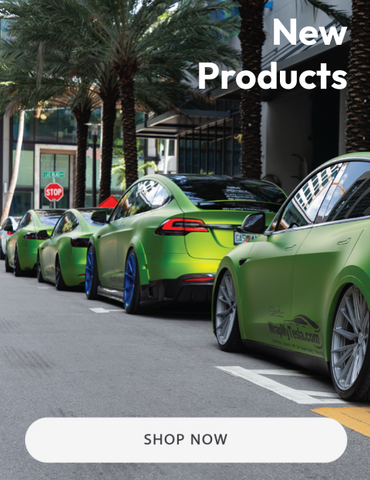As non-Tesla EVs begin charging at US Superchargers, drivers are working out cable issues

The opening up of Tesla’s Supercharger network is a positive step forward for the whole industry, but there are going to be challenges to be worked out. EV boosters and influencers have been converging on the half-dozen or so “open” stations in the state of New York to test out the system and share some of the good and bad points.
 |
Above: Tesla charging port at a Supercharger (Image: Casey Murphy / EVANNEX).
In a recent video, Marques Brownlee walks us through the process of charging a non-Tesla at a Supercharger. He’s the first one to arrive at the station, and things start off smoothly—he chooses a charging stall using the Tesla app, a nifty little adapter called the Magic Dock is automatically unlocked, and he plugs in and happily begins charging.
Above: Charging a non-Tesla at a Supercharger (Video: Auto Focus / YouTube).
Once an assortment of non-Tesla EVs show up, however, things get weird. Supercharger sites were designed for Teslas, which all have their charging ports in the aft port corner. Other EVs have charging ports all over the place—some on the left, some on the right, some on the front grill, some a few feet back on the forward quarter panel.
Fellow EV advocate Tom Moloughney shows up in a Ford F-150 Lightning, and getting the plug to click in requires stretching it to its limit. Other EVs can’t get the cable to reach unless they park across more than one space—I for one don’t want to see how that works out at a crowded Supercharger site at rush hour.
In the weeks to come, we’ll surely see an avalanche of stories about cord length troubles. The obvious solution—making the cables longer—is already in the works, but this may be a bit more complex than it sounds, thanks to the Superchargers’ stylish design. Tesla has had some months of experience doing this in Europe, so hopefully an elegant solution will be found before too many road rage incidents erupt.
Some commenters have pointed out another potential issue— Tesla’s requirement that drivers use its branded app is a brilliant marketing opportunity, but it could run afoul of state and federal regulations that mandate open access. A controversial California rule appears to require that new public EV chargers provide credit card readers (which Superchargers don’t have), and specifically prohibits providers from requiring “a subscription or membership.” (See also CARB’s EVSE Standards Regulation.)
Teslarati reports that Tesla currently offers a $12.99-per-month Supercharging membership that offers a discount on charging sessions—around 25% off the normal cost.
The Bipartisan Infrastructure Law mandates a number of consumer-protection standards for federally-funded EV chargers. One of these is that drivers must not be required to use multiple apps and accounts to charge—a single method of identification must work across all chargers.
One of Tesla’s reasons for opening up the Superchargers was surely to make future installations eligible for federal funding, so it will eventually have to figure out a way to comply with the letter of these and other state and local regulations.
===
This article originally appeared in Charged. Author: Charles Morris. Sources: Electrek, Teslarati




